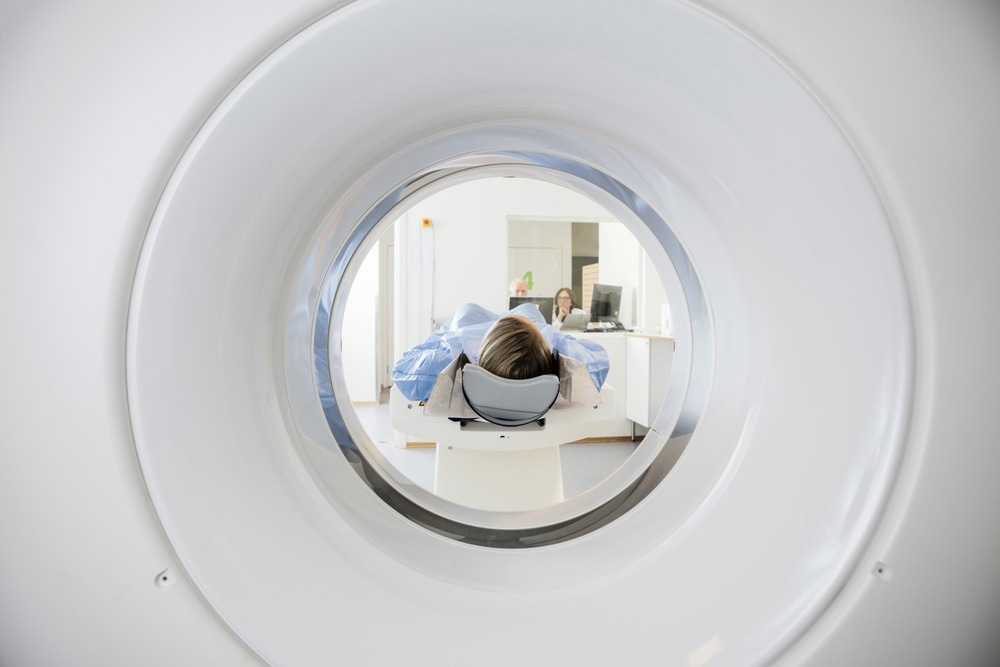Nov 15 2022Reviewed by Alex Smith
Researchers and colleagues at Cedars-Sinai have created an artificial intelligence (AI) tool that employs computed tomography (CT) scans to detect patients who are at risk of decreased blood flow to the heart.

Damini Dey, PhD. Image Credit: Cedars-Sinai
The tool can correctly predict decreased blood flow within the coronary arteries as well as within the heart muscle. The benefit of this AI tool is that it could possibly be used in real-time when patients come in for a CT scan to help doctors establish the subsequent step in the treatment strategy.
Background
Coronary arteries blockages usually happen because of the accumulation of fatty plaques. This may limit blood flow to the heart, resulting in chest pain, heart attacks, or even death. Detecting which arteries are at risk for decreased blood flow can aid in informing doctors as to which patients should be slated for successive tests or placement of stents.
The existing clinical standard for diagnosing decreased coronary arterial blood flow is known as invasive fractional flow reserve (FFR). It computes the decline in pressure within the arteries and thereby assesses how much blood flow each blockage restricts.

Image Credit: Tyler Olson/Shutterstock.com
For now, a heart positron emission tomography (PET) scan is an imaging test that employs a radioactive tracer to identify decreased blood flow in the heart muscle.
Method
The scientists examined data from 203 patients who had participated in an earlier study called the PACIFIC trial. During that study, all patients went through many tests within a two-week interval, including invasive coronary angiography with FFR, coronary CT scans, and heart PET scans.
The team designed an AI tool that examines the properties of the plaques on coronary CT scans and then estimates the probability of decreased blood flow on invasive FFR and PET scans.
Impact
According to the study’s authors, this AI tool can be integrated into the regular analysis of coronary CT scans. With this information on hand, doctors will be able to know which patients to refer for additional testing, like noninvasive stress testing or invasive coronary angiography, during patient visits. This would enable some patients to avoid invasive tests.
The study was reported in the peer-reviewed journal Circulation: Cardiovascular Imaging.
Expert Commentary
Coronary CT angiogram is the first-line test for chest pain, as it allows us to measure the atherosclerotic plaque and narrowing. If we can integrate CTA plaque data with stenosis with AI to predict impaired FFR, we could risk stratify patients correctly to realize the functional significance of the stenosis.
Damini Dey, PhD, Study Corresponding Author and Professor of Biomedical Sciences and Medicine, Cedars-Sinai
Damini Dey is also the Director of the Quantitative Image Analysis Lab at Cedars-Sinai’s Biomedical Imaging Research Institute.
Funding
The study received support from the National Heart, Lung and Blood Institute (award number 1R01HL148787-01A1) and the Dr Miriam and Sheldon G. Adelson Medical Research Foundation.
Authors
Other Cedars-Sinai authors include Andrew Lin, MBBS, PhD; Priscilla McElhinney; Yuka Otaki, MD, PhD; Donghee Han, MD; Alan Kwan, MD; Evangelos Tzolos, MD; Eyal Klein, MD; Keiichiro Kuronuma, MD; Kajetan Grodecki, MD, PhD; Benjamin Shou; Richard Rios, PhD; Nipun Manral, MSc; Sebastien Cadet, MSc; Daniel S. Berman, MD; and Piotr J. Slomka, PhD.
Journal Reference:
Lin, A., et al. (2022) Machine Learning From Quantitative Coronary Computed Tomography Angiography Predicts Fractional Flow Reserve–Defined Ischemia and Impaired Myocardial Blood Flow. Circulation: Cardiovascular Imaging. doi.org/10.1161/CIRCIMAGING.122.014369.
Source: https://www.cedars-sinai.org